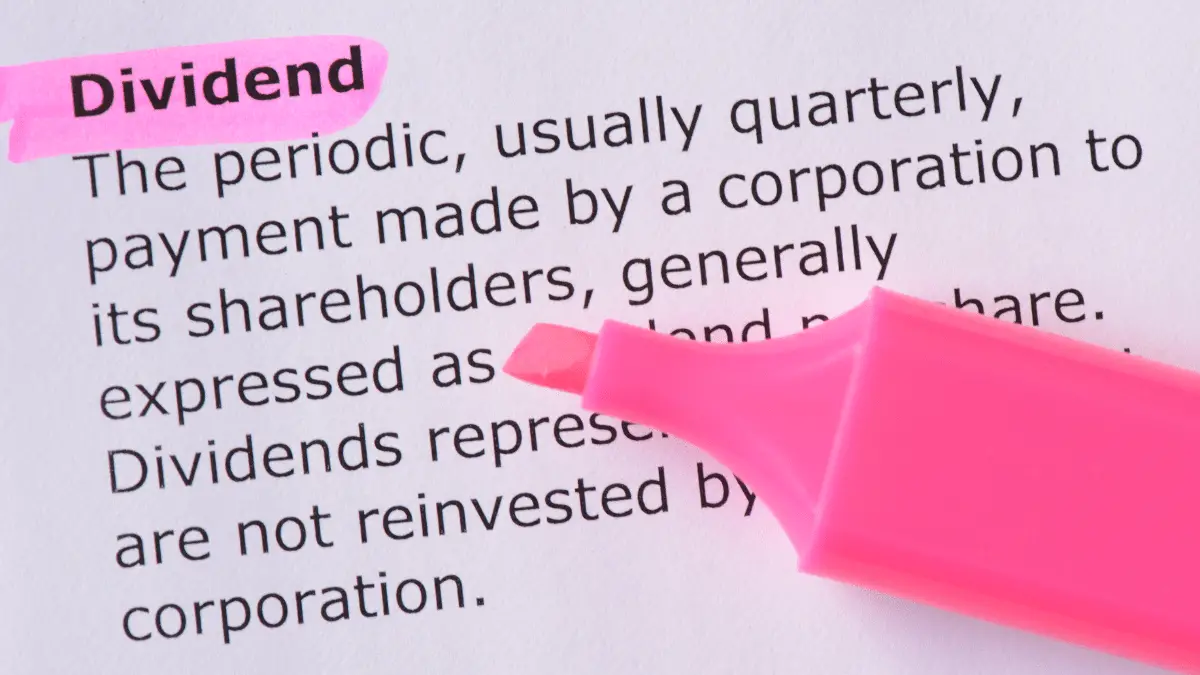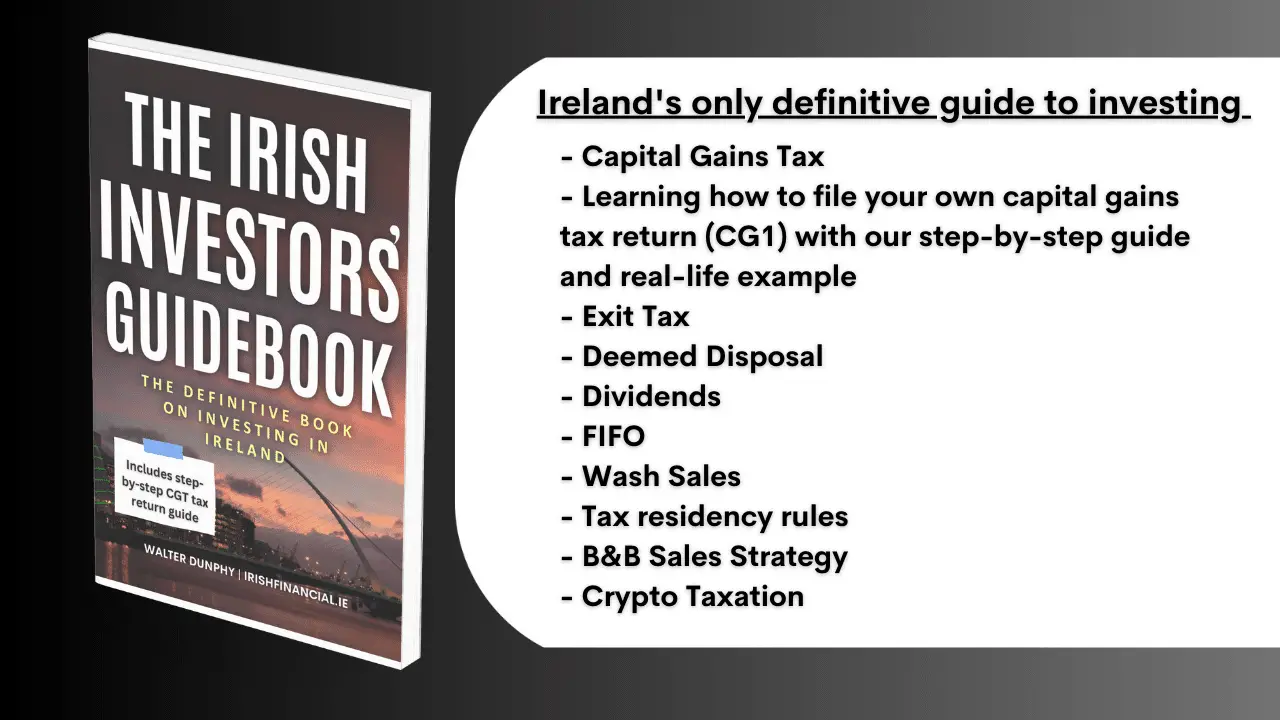Are you living in Ireland and interested in getting started with Dividend investing? In this blog post, I will give you the lowdown on everything you need to know, such as how much you can potentially earn, how dividend income is taxed in Ireland, and what brokers are best for dividend investing.
What brokers can I use to buy dividend paying stocks in Ireland?
There several high quality brokers to choose from in Ireland that will allow you to easily invest in hundreds of dividend paying stocks, such as;
- Degiro
- Etoro
- Trading 212
- Trade Republic
- BUX Zero
- Interactive Brokers
- Revolut – investments not covered by an investor protection scheme
An easy way to track when your dividend income will be paid
When you start building a dividend stock portfolio, your next headache is keeping track of when you will be receiving your dividend income.
If you plan on building your portfolio to such a size that you will be using the income to fund your every day life, it will be important to know precisely how much you will be receiving and exactly what date.
One tool that I have personally found to be a must have, is a dividend tracker. The Stock Events App could give me an accurate daily, weekly, and monthly breakdown of when cash was going to be coming in.

How much do you realistically need to invest to make €100
When many people think about starting a dividend stock investment portfolio, the dream is to build an additional passive source of income that maybe one they can even live off.
In reality though, it can take a hell of a lot of time and effort to get to a place where dividend income can replace your day job.
Thankfully, working out how much you need to invest to achieve the desired amount of monthly income is a very easy calculation to compute.
All you need to know is what the average dividend yield of your portfolio and also what your ideal target monthly dividend income is.
How Dividend Income is taxed in Ireland
Irish tax residents will pay income tax (PAYE), Universal Social Charge (USC), and Pay Related Social Insurance (PRSI) on any dividend income they earn.
The amount of tax payable by Irish tax residents on dividend income will therefore vary from person to person, as the tax liability will depend on the individuals tax credits and how much they make from other sources of income such as your day job.
Therefore, the tax rate you pay on dividends will be your marginal tax rate which can be as high as 52% for high earners. Your marginal tax rate is the rate of tax you will pay on any additional euro you earn on top of your existing income.
In some instances, some taxes may have been deducted from your dividend – especially when you are receiving a foreign dividend. If a double taxation treaty exists between Ireland and the country which has deducted tax from your dividend income, then you can claim a tax credit for this amount against any Irish tax also payable.
Notably there is no such credit available if tax has been deducted on UK dividends.
Let us take the following example, Brian receives a €1,000 dividend from McDonalds, but when he checks his broker account he notices that only €850 was added to his account. This was because 15% WHT was deducted. Now when Brian goes to declare this income in Ireland he will pay the following taxes

How to file tax return if you are a chargeable person
You are a chargeable person if you have a PAYE source of income and, either:
- Net assessable non-PAYE income of €5,000 or more in a year or;
- Total gross income from non-PAYE sources, of €30,000 or more in a year.
Chargeable people are generally those who are self-employed or those with normal 9-5 with substantial rental income. If you earn dividend income in this instance then it can be included in your annual tax return (Form 11). This may be completed by your accountant, so you should also inform them of how much dividend income you made.
How to file tax return if you are a non-chargeable person
You are not a chargeable person if you have a PAYE source of income and your net assessable non-PAYE income is less than €5,000.
Non-chargeable persons can declare income at anytime by logging into their ‘my account’ on Revenue.ie or else wait until the end of the year and complete an income tax return (Form 12).
Below is a screenshot from the paper version of this form but there is also a simplified online version that is available through your ‘my account’ on Revenue.ie.

FAQs about Dividends
Why do companies pay dividends?
When a company makes a profit, as most good companies set out to do, they have two options. They can either reinvest these profits in the company to try and grow the company and its profits further, or they can pay it out to shareholders.
Either way, these public companies want to provide an adequate return to shareholders to compensate them for the risk.
Companies that are in the growth stage of their life cycle will often choose to reinvest all profits to further fuel their growth, whereas more mature companies that generate a lot of cash may not have enough opportunities to reinvest and will pay out a greater portion of their earnings as dividends.
What is the dividend yield?
Dividend Yield = most recent annual dividend/ current share price. The dividend yield measures the ratio of the cash dividends paid out to shareholders relative to the market share price.
Investors may often be drawn to investing in companies that pay the highest dividend yields, but this may not always be a good investing decision. Often the reason for this is a share drop in the share price due to the company getting into some difficulties.
Disclaimer: This blog post is for informational and educational purposes only and should not be construed as financial advice.







